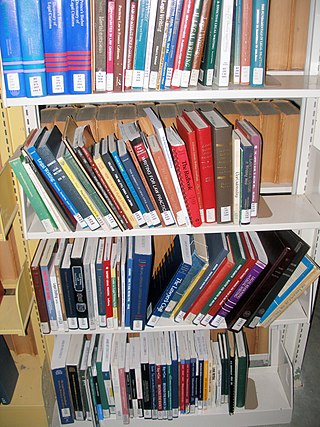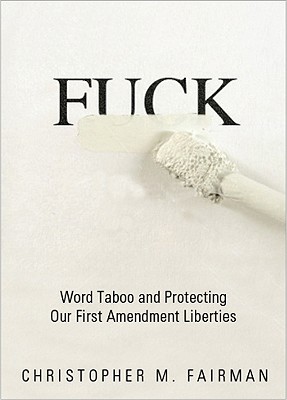Related Research Articles
The Open Source Definition (OSD) is a document published by the Open Source Initiative. Derived from Bruce Perens' Debian Free Software Guidelines, the definition is the most common standard for open-source software. The definition has ten criteria, such as requiring freely accessed source code and granting the open-source rights to everyone who receives a copy of the program. Covering both copyleft and permissive licenses, it is effectively identical to the definition of free software, but motivated by more pragmatic and business-friendly considerations. The Open Source Initiative's board votes on proposals of licenses to certify that they are compliant with the definition, and maintains a list of compliant licenses on its website. The definition has been adapted into the Open Knowledge Foundation's Open Definition for open knowledge and into open hardware definitions.

A wiki is a form of hypertext publication on the internet which is collaboratively edited and managed by its audience directly through a web browser. A typical wiki contains multiple pages that can either be edited by the public or limited to use within an organization for maintaining its internal knowledge base.

WordPerfect (WP) is a word processing application, now owned by Alludo, with a long history on multiple personal computer platforms. At the height of its popularity in the 1980s and early 1990s, it was the market leader of word processors, displacing the prior market leader WordStar.
A screenplay, or script, is a written work produced for a film, television show, or video game by screenwriters. A screenplay written for television is also known as a teleplay. Screenplays can be original works or adaptations from existing pieces of writing. A screenplay is a form of narration in which the movements, actions, expressions and dialogue of the characters are described in a certain format. Visual or cinematographic cues may be given, as well as scene descriptions and scene changes.

In computing, internationalization and localization (American) or internationalisation and localisation (British), often abbreviated i18n and l10n respectively, are means of adapting computer software to different languages, regional peculiarities and technical requirements of a target locale.

Eben Moglen is an American legal scholar who is professor of law and legal history at Columbia University, and is the founder, Director-Counsel and Chairman of Software Freedom Law Center.

A steno machine, stenotype machine, shorthand machine, stenograph or steno writer is a specialized chorded keyboard or typewriter used by stenographers for shorthand use. In order to pass the United States Registered Professional Reporter test, a trained court reporter or closed captioner must write speeds of approximately 180, 200, and 225 words per minute (wpm) at very high accuracy in the categories of literary, jury charge, and testimony, respectively. Some stenographers can reach up to 375 words per minute, according to the website of the California Official Court Reporters Association (COCRA).

Technical writing is a specialized form of communication used by many of today's industrial and scientific organizations to clearly and accurately convey complex information to a user. An organization's customers, employees, assembly workers, engineers, and scientists are some of the most common users who reference this form of content to complete a task or research a subject. Most technical writing relies on simplified grammar, supported by easy-to-understand visual communication to clearly and accurately explain complex information.

The adjective free in English is commonly used in one of two meanings: "at no monetary cost" (gratis) or "with little or no restriction" (libre). This ambiguity can cause issues where the distinction is important, as it often is in dealing with laws concerning the use of information, such as copyright and patents.
Seattle University School of Law is the law school affiliated with Seattle University, located in Seattle, Washington, United States.

Legal writing involves the analysis of fact patterns and presentation of arguments in documents such as legal memoranda and briefs. One form of legal writing involves drafting a balanced analysis of a legal problem or issue. Another form of legal writing is persuasive, and advocates in favor of a legal position. Another form involves drafting legal instruments, such as contracts and wills.
Screenwriting software are word processors specialized to the task of writing screenplays, i.e. screenwriting.

The GNU General Public Licenses are a series of widely used free software licenses, or copyleft licenses, that guarantee end users the freedoms to run, study, share, and modify the software. The GPL was the first copyleft license for general use and was originally written by Richard Stallman, the founder of the Free Software Foundation (FSF), for the GNU Project. The license grants the recipients of a computer program the rights of the Free Software Definition. The licenses in the GPL series are all copyleft licenses, which means that any derivative work must be distributed under the same or equivalent license terms. It is more restrictive than the Lesser General Public License and even further distinct from the more widely-used permissive software licenses such as BSD, MIT, and Apache.

A blue pencil, also known as a checking pencil, is a two-color pencil traditionally used by an editor to correct a written copy. The blue end is typically Prussian blue, and the red end is typically a warm vermilion red. They are most often half red and half blue, but some are 70% red and 30% blue. An editor-in-chief would use a blue colored pencil to make proofreading marks and final notes on manuscripts before sending it to be typeset and published. The pencils and their blue excisions became associated with the editing process and editorial oversight.
Of course it takes skill to be a poet! But an editor? A pair of shears, a blue pencil, and a paste-pot!
Gary Kinder is a New York Times bestselling author, a lawyer, and an entrepreneur, who created and founded WordRake, the first editing software for professionals. He authored the true crime classic Victim: The Other Side of Murder (1982), Light Years: An Investigation into the Extraterrestrial Experiences of Eduard Meier (1987), and The New York Times Best SellerShip of Gold in the Deep Blue Sea (1998).
Contract Express is a document automation program designed and developed by the Legal Solutions arm of Thomson Reuters, a Canadian multinational mass media and information firm. Contract Express is available as a stand-alone app in a private or public cloud. Users of the product are typically law firms and corporations, such as Clifford Chance and Microsoft.

co-ment / COMT is a online word processor allowing collaborative writing and commenting. It was inspired by the software package stet, which was created to handle the GNU GPL version 3 online revision. It is free software, available under Affero GPL.

Peter S. Holmes is an American politician and attorney who served as the Seattle City Attorney from 2010 to 2022. He was elected in November 2009, defeating incumbent Tom Carr by a significant margin. After winning a second term uncontested in 2013, he defeated challenger Scott Lindsay in 2017 with nearly 75% of the vote, but failed to advance from the primary in a bid for a fourth term in the 2021 election.

Fuck: Word Taboo and Protecting Our First Amendment Liberties is a nonfiction book by law professor Christopher M. Fairman about freedom of speech, the First Amendment to the United States Constitution, censorship, and use of the word fuck in society. The book was first published in 2009 by Sphinx as a follow-up on the author's article "Fuck", published in 2007 in the Cardozo Law Review. It cites studies from academics in social science, psychoanalysis, and linguistics. Fairman establishes that most current usages of the word have connotations distinct from its meaning of sexual intercourse. The book discusses the efforts of conservatives in the United States to censor the word from common parlance. The author says that legal precedent regarding its use is unclear because of contradictory court decisions. Fairman argues that once citizens allow the government to restrict the use of specific words, this will infringe upon freedom of thought.

Legal technology, also known as Legal Tech, refers to the use of technology and software to provide legal services and support the legal industry. Legal Tech companies are often startups founded with the purpose of disrupting the traditionally conservative legal market.
References
- ↑ Golbert, Charles P. "Legal editing software packed with pros and cons". Chicago Daily Law Bulletin. Retrieved 29 October 2024.
- ↑ Goldstein, Tom; Lieberman, Jethro K. (2016-01-08). The Lawyer's Guide to Writing Well. Univ of California Press. ISBN 978-0-520-96335-1.
- ↑ Taylor Soper. "Spellcheck on steroids: City of Seattle implementing WordRake editing software". GeekWire. Retrieved 21 July 2014.
- ↑ Kenneth Adams. "Would Contract Drafters Benefit from Using WordRake?". Adams on Contract Drafting. Retrieved 21 July 2014.
- ↑ Robert Ambrogi. "The WordRake Editing Program Takes on Scalia, Kagan and El Pollo Loco". LawSites. Retrieved 21 July 2014.
- ↑ Carol Gerber. "WordRake: Clearing the Clutter from Legal Writing". Attorney at Work. Retrieved 21 July 2014.